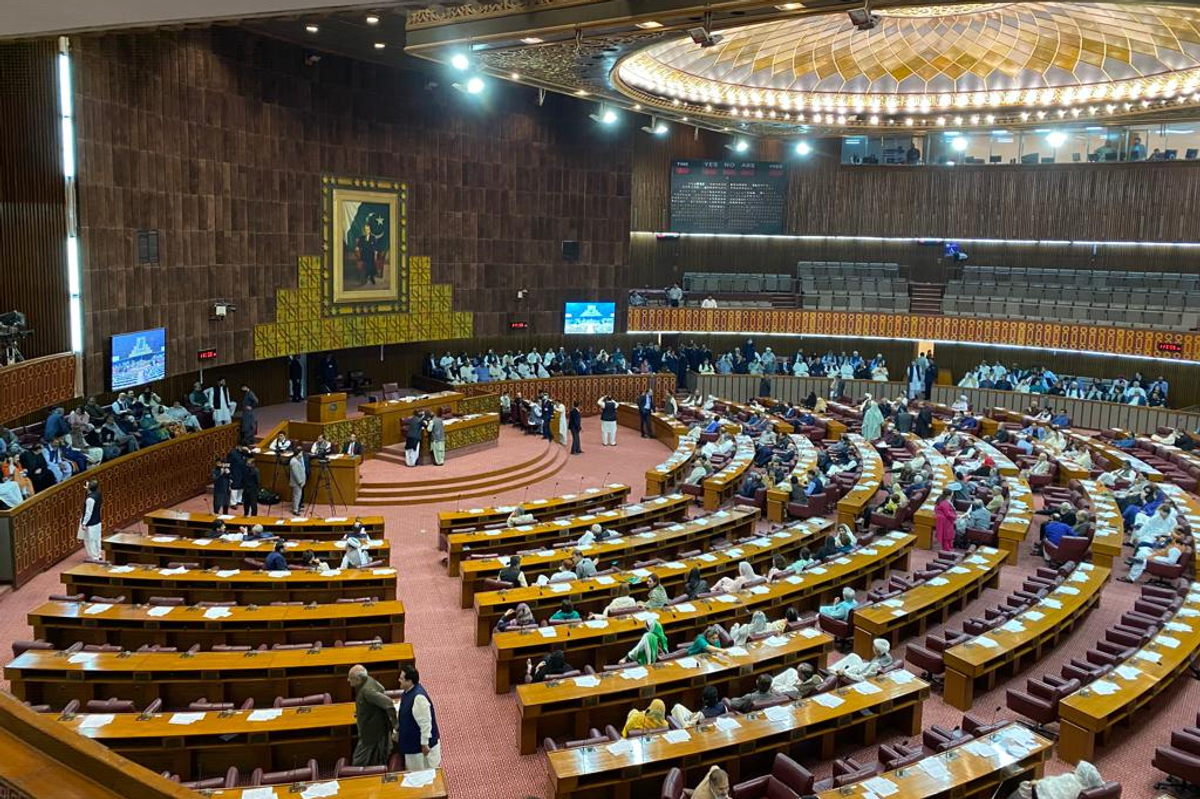Pakistan passes law ending death penalty for stripping offense, hijacking links
The legislation passed by National Assembly is part of wider efforts to reform penal code provisions criticized by legal and human rights experts

Javed Hussain
Correspondent
I have almost 20 years of experience in print, radio, and TV media. I started my career with "Daily Jang" after which I got the opportunity to work in FM 103, Radio Pakistan, News One, Ab Tak News, Dawn News TV, Dunya News, 92 News and regional channels Rohi TV, Apna Channel and Sach TV where I worked and gained experience in different areas of all three mediums. My journey from reporting to news anchor in these organisations was excellent. Now, I am working as a correspondent with Nukta in Islamabad, where I get the opportunity of in-depth journalism and storytelling while I am now covering parliamentary affairs, politics, and technology.

National Assembly of Pakistan.
Courtesy: APP
Pakistan's National Assembly passed on Wednesday a key amendment to its criminal law that removes the death penalty for two specific offenses involving the forcible stripping of a woman's clothes and the facilitation of aircraft hijacking.
The legislation is part of broader efforts to reform controversial provisions in the penal code that have drawn criticism from legal experts and human rights groups. The move also follows recommendations from the European Union aimed at aligning Pakistan’s legal framework with international standards.
The legislation, titled the Criminal Law Amendment Bill 2025, was passed during a session chaired by National Assembly Speaker Sardar Ayaz Sadiq. The bill had already received approval from the Senate and introduces two major amendments targeting controversial provisions in Pakistan’s Penal Code.
The first amendment eliminates the death penalty under Section 354A, a clause introduced during General Ziaul Haq’s military rule, which allowed capital punishment for forcibly stripping a woman’s clothes.
Legal experts and rights activists have long criticized the provision for being misused and fueling police corruption. “Now, bribes are commonly taken to convert a Section 354 charge into a harsher 354A,” said Federal Law Minister Senator Azam Nazir Tarar, while addressing lawmakers.
The second amendment targets Section 402C, a provision enacted during General Pervez Musharraf’s tenure, which allowed the death penalty not only for hijackers but also for those merely associated with them.
Critics have argued that the clause lacked due process protections and was overly broad. The amendment now replaces the death penalty with alternative sentencing, in line with international legal norms.
During the debate, JUI-F MNA Alia Kamran proposed referring the bill back to the relevant committee for further review. However, the motion was opposed by Law Minister Tarar and ultimately defeated. The bill was passed with 87 votes in favor and 41 against, following a demand by opposition lawmakers for a vote.
Meanwhile, three other legislative proposals - the Whistleblower Protection and Vigilance Commission Act 2025, Pakistan Coast Guard Amendment Bill 2025, and Pakistan Citizenship Amendment Bill 2025 - were introduced in the Assembly and referred to the respective standing committees for further deliberation.










Comments
See what people are discussing